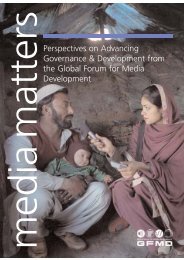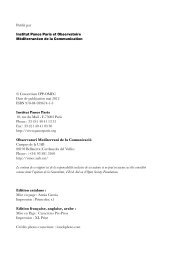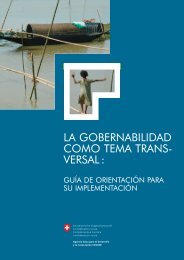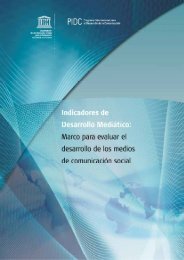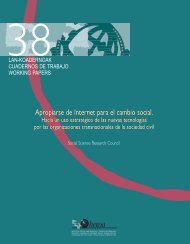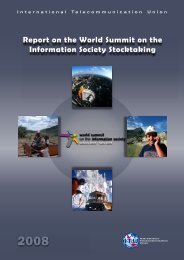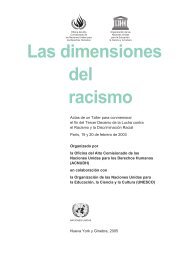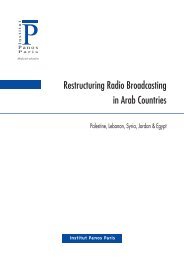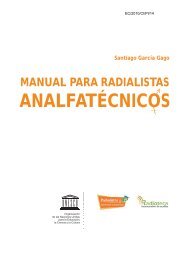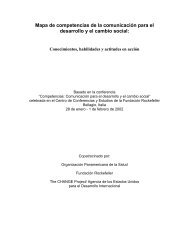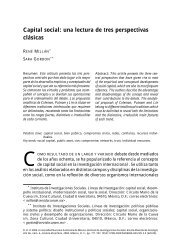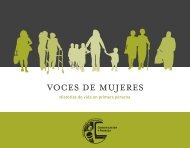Arab Knowledge Report 2009
Arab Knowledge Report 2009
Arab Knowledge Report 2009
- No tags were found...
You also want an ePaper? Increase the reach of your titles
YUMPU automatically turns print PDFs into web optimized ePapers that Google loves.
No one pursuesknowledge forits own sake, wemostly seek it for“what it can do”BOX 1-4I say, then, that the “power ofknowledge”—and I might just as wellsay “powerful knowledge”—is the firstreality which presents itself in ourcurrent age. I am not saying anythingnew. We all know that the shift fromknowledge as “contemplation,” as inthe Greek, to knowledge as “power”as in the works of Jabir ibn Hayyan,Bacon, and the modern West, is notnew. We all know that contemporarytechnology is the direct fruit of thisunderstanding. Here we must bearin mind that knowledge is not anaccumulation of scientific discoveriesbut, before anything else, a method thatencompasses the rules according towhich all the world’s data is viewed—man, nature, society, values, creations,and manufactured goods—and thatknowledge has its rigorous criticaland methodological instruments. Itsinstrumental or pragmatic naturetoday not only deals with the appliedor technical aspects, but includes allactivities of man, society and thestate, to the extent that, if “scientificknowledge” on these various fieldsof human activity were accumulated,it would be possible to shift to action.This means that knowledge wouldbecome a “tool” for the “governance”of man, society, and the state, and whatwe call the “human” and the “social”sciences could pursue these goalsWhen reviewing what has been saidabout these poles, we must emphasiseinteraction, rather than alignment orjuxtaposition. The focus on interactionbrings us into contact with productiveprocesses, narrows distances, and producesforms of interaction that are difficult toseparate or isolate unless for temporary orprocedural reasons, or for expediency.THE NETWORKED SOCIETY:THE MOST CONSPICUOUSFEATURE OF THEKNOWLEDGE SOCIETYA strong synonym for the “knowledgesociety” is the “networked society,” whichitself has given rise to several synonymsThe Power of <strong>Knowledge</strong>specifically. Today no one pursuesknowledge for its own sake, i.e., forthe pleasure produced by its magic,its exoticism, its revelations, or itsbeauty; we mostly seek it for “what itcan do.” Linguistics and the literaryarts themselves, at the end of the day,seek human intercommunication andpleasure, and what Spinoza calls the“pleasure of knowledge” operateswithin the same framework….Today the power of knowledge isevident in various forms, particularlyin the technological sector, and it isour inability to produce “technicalknowledge,” either now or perhapsin the foreseeable future, that revealsour inadequacy, weakness, and misery.We are able to participate at presentonly within the confines of the spacesthat produce that knowledge, i.e.,those of the “European West” or the“American West.” Nothing, however,prevents us from producing “humanand social knowledge.” From withinour own national spaces, we can directour research towards human issues andvalues, society and its values, and thestate and its principles. We can treatthese issues on the basis of scientific,rational methodologies and we canbenefit from them in our reformulationof humanity, society, and the state, andthus bestow on “knowledge” a power itdoes not at this time possess.Source: Fahmi Jad‘an, 2002, Riyah al-‘Asr, Al-Mu’assasa al-‘<strong>Arab</strong>iyya lil-Dirasat wal-Nashr, Beirut, pp. 14,15,16.such as the “digital society” and the “digitaldivide.” At the end of the last century,Manuel Castells published an importantthesis in three volumes entitled La Sociétéen Reseaux (The Networked Society), a hugework that is courageous, powerful, andoriginal, and touches on many complexaspects of the spirit of our age. Castellsbelieves that the digital character of theknowledge society raises numerous issues. Itconstitutes the most exciting characteristicof the information revolution by virtue ofthe ease with which its tools, techniques,and software may be used in productionsystems. At the same time, this very easeleads to outcomes and problematics thattouch the core of the transition to a hightechprecision technology within theknowledge society. The UNESCO <strong>Report</strong>Towards <strong>Knowledge</strong> Societies illuminates theissue with a telling simile, saying that thedifficulty of finding the appropriate itemof information in the information age islike “drinking water from a fire hose: thereis plenty of water, but one must beware ofdrowning” (UNESCO, 2005, in French).In Volume II of the former work,entitled The Power of Identity (Castells, 1999,in French), the author devotes specialattention to the networked society andexplains that the information age isgoverned and directed by two centralpoles: the network pole and the activeselfpole. In his account, the concept of“the network” does not mean any specificnetwork, but multiple networks controllingsources of power, wealth, and informationand enhanced with digital technology.The network is “the new social structurefor the information age—the age of thenetworked society made up of networksof production, power, and experience, aculture that by virtue of these networksplays a part in building a virtual culturewithin a framework of globalised flows andtranscends the concepts of time and place.In this age of ours, all societies have beenbreached by the sweeping power of thenetworked society.” Opposed to globalisednetworking, which is the salient feature ofthe knowledge society, stands the “self ”—34 ARAB KNOWLEDGE REPORT <strong>2009</strong>



